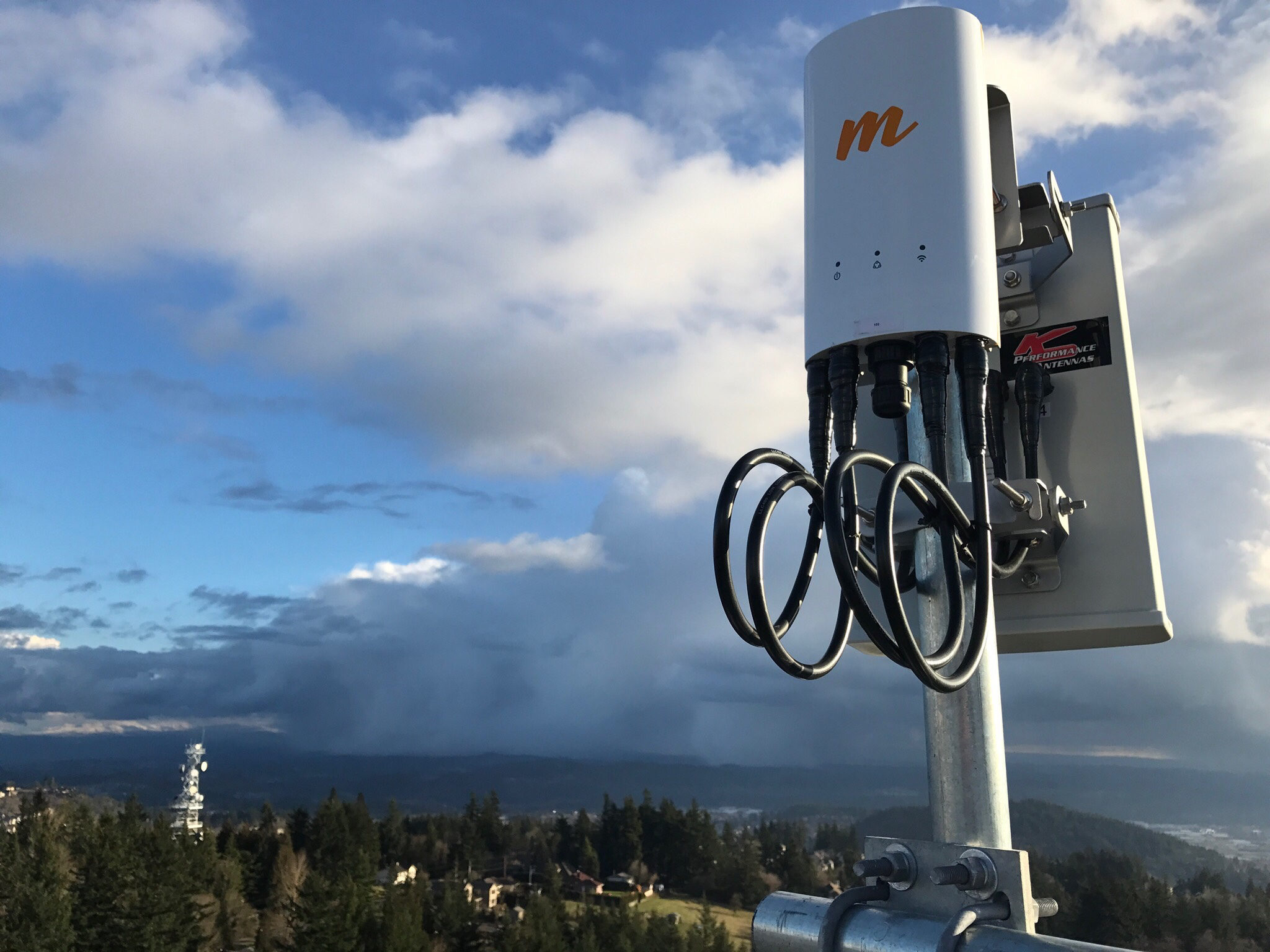Stephouse Selects Mimosa for Ultra-Broadband Fixed Wireless Network
Taking on the Big Guys, ISP Wins Over Portland with Reliable, High-Speed Internet
Overview:
Stephouse Networks wanted to take on incumbents and blow away dial-up in the Portland Metro Area.
Requirements:
Stephouse needed a solution to compete against The Big Guys with an ultra-fast, reliable network.
Solution:
The modernized network is a game-changer for Stephouse, with highly reliable connectivity and speeds of up to 500 Mbps.
Results:
Stephouse upgraded their network of point-to-multipoint links with Mimosa backhaul radios (B11, B5, B5c), access devices (A5, A5c), and client devices (C5, C5c).
Tyler Booth, President of Stephouse Networks, is a well-loved personality in Portland, Oregon. For years, residents and business owners in certain pockets of the city were struggling with dialup or simply didn’t have broadband coverage. With the service provider duopoly in the city maintaining sky high pricing, Booth created Stephouse Networks to offer competing services to the underserved areas by taking the incumbents head-on.
Broadband for Communities Struggling with Dial-Up
Portlanders love to support local businesses, so Booth felt confident the community would rally behind a new, local choice for internet services. In 2002, he identified and focused on smaller areas of the city that didn’t have broadband service, or were only served by the incumbent providers. Today, Stephouse covers nearly 500 square miles of the Portland Metro area in addition to many rural areas, where they are often the only terrestrial-based, broadband option.
Stephouse offers business and residential service with speeds up to 250 Mbps starting at $20 month, and many customers use the high-speed broadband for video streaming Netflix, Hulu, HBO, and Sling, which accounts for 90 percent of the ISP’s “prime time” evening traffic. Residents rely on high-speed access from Stephouse for social media, search, and Internet of Things (IoT) applications. Stephouse business customers are migrating their applications to the cloud, and as a result, they are more dependent than ever on high-speed, reliable data.
With the entire network owned by Stephouse, the ISP has great flexibility in pricing and control, enabling it to respond quickly to resolve issues. Constructing the network with 100% Fixed Wireless solutions is a cost advantage that gives the company a leg up when competing directly with the much larger incumbent providers. ROIs are typically anywhere from three to twelve months depending on the size and scope of the project, whether single family residential homes or larger multi-dwelling unit (MDU) properties.
How Stephouse Made it Happen
Stephouse has deployed Mimosa backhaul radios, access devices and client devices including Mimosa B11, B5, and B5c backhaul radios, A5 and A5c access devices and over 110 C5 and C5c client devices, in 80 locations throughout the Portland Metro area. Links range from a few hundred feet to over 40 miles.
“We’re on an aggressive ‘rip and replace’ schedule to upgrade much of our legacy equipment from other manufacturers based on the success we’ve had with the A5/C5c,” said Booth, President of Stephouse Networks.“ The C5c has allowed us to install high-performing links at much greater distances in very high-noise environments.” Features like auto-provisioning, which includes auto-unlock functionality for C5 clients, have greatly simplified the installation process and expedited client setups. Upgrading to the Mimosa solutions, Stephouse has also seen link speeds increase from 75 Mbps to over 500 Mbps in either direction.
“Getting 100 Mbps off a point-to-multipoint (PTMP) sector to multiple clients from any other manufacturer wouldn’t be possible in my experience. In the Portland market, this was critical for us and is one of the ways Mimosa has enabled us to remain competitive.”
Booth continued, “Simply put, Mimosa has the best cost-to-performance ratio—better than any other equipment manufacturer in the market today—and their road map is headed where we need to be in the future.”
“Mimosa has been a game-changer for Stephouse—their solutions enable us to compete with wireline cable and fiber providers in both urban and rural markets,” said Booth. “Without Mimosa, we’d be struggling to provide the kind of speeds required at the price points and ROI we need to remain competitive.”
John Colvin, SVP of Global Field Operations at Mimosa, stated, “We are excited to see such an innovative ISP like Stephouse take on the incumbent providers and succeed. Stephouse is providing reliable and reasonably priced ultra-broadband services for underserved communities and making huge strides towards closing the digital divide.”
